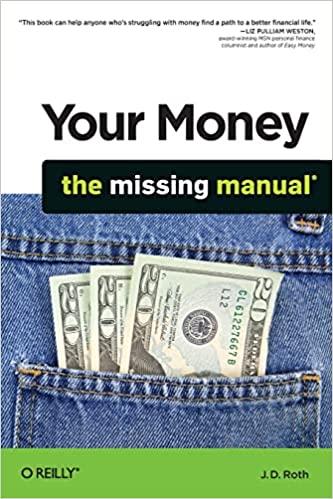Question
Your division is considering two investment projects, each of which requires an up-front expenditure of $26 million. You estimate that the cost of capital is
Your division is considering two investment projects, each of which requires an up-front expenditure of $26 million. You estimate that the cost of capital is 10% and that the investments will produce the following after-tax cash flows (in millions of dollars):
| YEAR | PROJECT A | PROJECT B |
| 1 | 5 | 20 |
| 2 | 10 | 10 |
| 3 | 15 | 8 |
| 4 | 20 | 6 |
a. What is the regular payback period for each of the projects? Round your answers to two decimal places
Project A :
Project B :
b. What is the discounted payback period for each of the projects? Do not round intermediate calculations. Round your answers to two decimal places.
Project A :
Project B:
c. If the two projects are independent and the cost of capital is 10%, which project or projects should the firm undertake?
The firm should undertake (PROJECT A / PROJECT B / BOTH PROJECTS) - choose one
d. If the two projects are mutually exclusive and the cost of capital is 5%, which project should the firm undertake?
The firm should undertake (PROJECT A / PROJECT B) - choose one
e. If the two projects are mutually exclusive and the cost of capital is 15%, which project should the firm undertake?
The firm should undertake (PROJECT A / PROJECT B) - choose one
f. What is the crossover rate? Round your answer to two decimal places.
g. If the cost of capital is 10%, what is the modified IRR (MIRR) of each project? Do not round intermediate calculations. Round your answers to two decimal places.
Project A :
Project B :
Step by Step Solution
There are 3 Steps involved in it
Step: 1

Get Instant Access to Expert-Tailored Solutions
See step-by-step solutions with expert insights and AI powered tools for academic success
Step: 2

Step: 3

Ace Your Homework with AI
Get the answers you need in no time with our AI-driven, step-by-step assistance
Get Started


